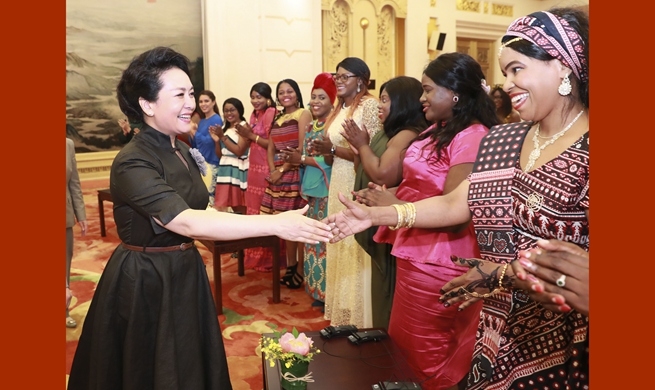by Fatima Aruri
RAMALLAH, May 30 (Xinhua) -- There seems to be a national consensus among Palestinians to reject the U.S.-led efforts to reach a peace deal between Israel and Palestine, better known as the "Deal of the Century."
The U.S. efforts further enraged Palestinians after President Donald Trump's senior advisor Jared Kushner announced that an "economic workshop" will take place in Bahrain in June to bring together finance ministers to meet with business people without discussing it with the Palestinian side.
As a result, the Palestine's main economic force, the private sector, issued a joint statement two days ago, saying that they have turned down the invitations to the conference.
Palestinian American business people were among the first to slam the plan.
Zahi Khouri, Palestinian American business tycoon, told Xinhua that he doesn't think the meeting is likely to take place.
"I don't think it will happen simply because I can't see any investor, considering the investment environment where the borders have not been defined," Khouri said.
Khouri, 81, chairman of the Palestinian franchised Coca-Cola company, said that for such a conference to take place, it will require political transformations, such as removing all checkpoints and reaching peace at the level of the peoples.
Sam Bahour, 54, is a Palestinian American business consultant and a managing partner of a business development consultancy firm.
He came to Palestine 25 years ago under the then promising situation in the wake of the signature of the Oslo Accords.
Bahour said that the Palestinian private sector's position is detrimental in the investment environment in Palestine under its current conditions.
"We, in the private sector of Palestine, know better than anyone else that we have maxed out on what we are able to do given the current parameters," Bahour said.
"The Israelis control each of our strategic economic assets, including the land, water ... petroleum, movement and access, as well as borders," he added.
He slammed Kushner's announcement by saying that "I think they are playing the wrong game in trying to solve a political conflict by using economy."
Another Palestinian American business woman Laila Akel, 36, who runs a U.S. security company operating in the West Bank, played down the outcome of this conference.
"Whether it will take place in its full capacity or not ... the problem with the conference is that it feels void of the overall context of the Palestinian-Israeli conflict," she said.
Akel added that while the majority of invitations to this conference were turned down, the few Palestinians who are attending it do not represent a real economic force.
"It seems that they're trying to fill a quota by bringing Palestinian business people on a small scale ... without necessarily taking into consideration that these people cannot make much difference without the consent of the government or that of the big players in the trading sector in Palestine," she said.
The Palestinians severed ties with the United States after a series of steps were taken by the U.S. administration including shutting down the Palestine Liberation Organization's office in Washington, recognizing Jerusalem as Israel's capital and moving its embassy to the disputed holy city.
In addition, the Trump administration has cut funds in Palestinian aid.
Palestinian officials repeatedly said that the "Deal of the Century" falls short on their aspirations and rejected it stubbornly.

















